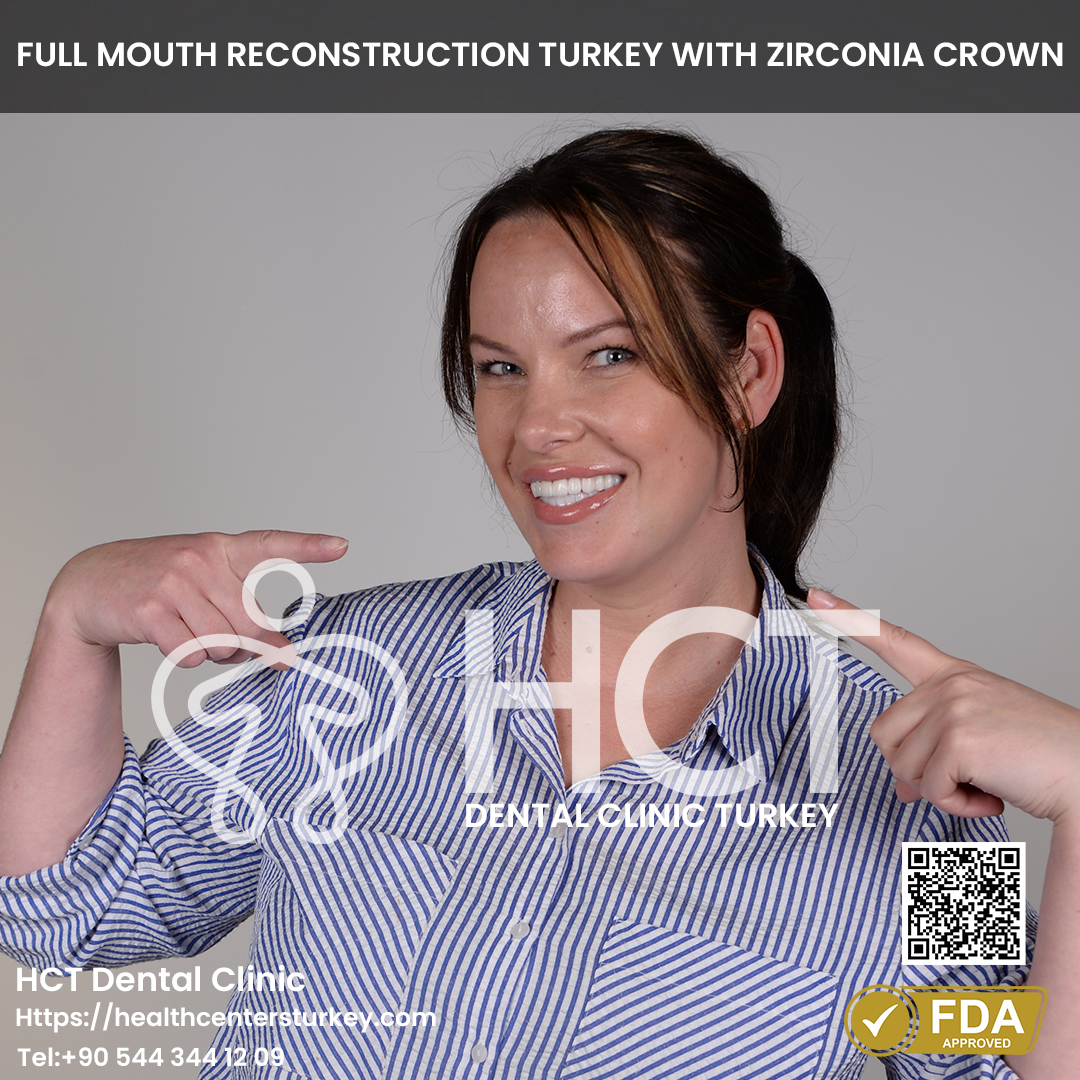Experience Luxury Dental Care in Turkey with Competitive Prices

Dental implants have turn into a focal point in fashionable dentistry, providing a dependable answer for these dealing with tooth loss. Among the multiple advantages they provide, one important side value contemplating is their impact on adjacent teeth. Understanding how dental implants have an result on surrounding teeth aids in making informed choices about oral health.
When a tooth is lost, neighboring teeth can simply shift toward the area left behind. This motion can lead to misalignment, which compromises the general bite and performance of the mouth. Dental implants mimic natural tooth roots, thereby sustaining the position of adjacent teeth.
Tips for Dental Procedures in Turkey
The stability provided by an implant is essential, because it helps in preserving not just the bodily alignment but also the structural integrity of the jawbone. When a tooth is missing, the underlying bone can start to deteriorate because of lack of stimulation. An implant exerts pressure on the bone during chewing, just like a natural tooth, which promotes bone health.
In some circumstances, a bridge or partial denture could also be thought-about as a substitute for implants. While these options may restore some performance, they can place further stress on neighboring teeth. Bridges often require submitting down the surrounding teeth to accommodate the anchors, thereby affecting their health over time. Dental implants, then again, don't alter current teeth, making them a more conservative alternative.
Smile Enhancements Available in Charming Turkey
Hygiene turns into another crucial issue when contemplating adjacent teeth within the context of implants. With dental implants, the individual can keep an everyday hygiene routine similar to natural teeth. Flossing and brushing around the implant are simple, guaranteeing that the gum tissue stays healthy and minimizing the risk of gum disease that would adversely have an result on adjacent teeth.
Moreover, the materials used in dental implants are biocompatible. This means they are designed to integrate properly with the body, decreasing the possibilities of an opposed response. This attribute not solely makes the implant safe but in addition protects nearby teeth from potential issues that could come up because of contamination or infection.
In terms of aesthetics, dental implants provide a natural look and feel, closely resembling original teeth. Adjacent teeth benefit from this aesthetic attraction as nicely. When an implant is positioned, the encircling gum tissue may be shaped to mimic natural contours, thereby enhancing the overall appearance of the smile. This aesthetic factor can encourage individuals to invest in their oral care routines, benefiting each the implants and adjacent teeth in the long term.
Low-cost Cosmetic Dentistry Options in Turkey
Another concern is the potential for gum disease, which may affect the health of adjacent teeth. Gum disease can happen when plaque builds up round teeth and implants. Regular dental visits and applicable oral hygiene can mitigate this concern. The presence of implants also can serve as a motivator for better dental hygiene practices, as individuals become more aware of sustaining their total mouth health.
Studies have proven that dental implants can contribute to a big improvement in quality of life. Patients often experience elevated confidence and are much less hesitant to smile or interact in social interactions. A healthy and well-maintained smile indirectly promotes higher take care of adjacent teeth, as people are inclined to turn into extra conscious of their overall oral sites hygiene.
One often-overlooked aspect is the psychological influence of dental implants on sufferers. Knowing that implants supply long-term solutions can ease the anxiety related to tooth loss. With fewer worries about future tooth shifts, sufferers usually have a tendency to make investments time and effort into caring for their teeth, which incorporates adjacent teeth.
In conclusion, dental implants serve as greater than only a solution for missing teeth; they play a pivotal function in sustaining the health and integrity of adjacent teeth. From preventing misalignment to selling gum health and enhancing aesthetics, the benefits are manifold. By opting for implants, people can not solely restore functionality but also foster a more healthy oral environment for surrounding teeth. The psychological and aesthetic advantages further contribute to an overall enhanced quality of life.
Learn About Highly Regarded Dental Clinics around Turkey
In the long term, understanding how dental implants have an effect on adjacent teeth can guide people in making empowered choices relating to their dental health. The integration of these implants into the mouth acts as a stabilizing drive, safeguarding both the bodily alignment and functionality of neighboring teeth, whereas promoting a long-lasting, wholesome smile.
- Dental implants sometimes don't exert strain on adjacent teeth, sustaining their integrity and decreasing the chance of shifting or misalignment.
- The placement of an implant often encourages higher oral hygiene habits, positively influencing the health of adjacent teeth through improved cleansing practices.
The Hub for Quality Dental Care at Value Rates
- In some instances, dental implants can stimulate the surrounding bone, which helps protect the natural teeth's place and general dental structure.

- The hole left by missing teeth can lead to bone loss; dental implants can prevent this, thereby protecting adjacent teeth from potential complications.
- Uncover Best Dental Treatments in Turkey including Implants, Veneers, and More
Showcasing the Best Dental Solutions of Turkey for Beautiful Smiles
- By restoring the function of a missing tooth, implants assist distribute chunk forces evenly, decreasing wear and stress on neighboring teeth.

- Properly positioned dental implants can act as a assist structure, stopping undesirable motion of adjacent teeth ensuing from tooth loss.
- The presence of an implant might enhance the aesthetic appearance of surrounding teeth by filling in gaps and supporting facial structure.
Locate Your Ideal Dental Clinic in Turkey for Aesthetic Procedures
- Dental implants eliminate the need for adjacent teeth alteration, not like bridges, which require reshaping the nearby teeth for support.
- Implants also cut back the chance of gum disease compared to different tooth replacement choices, not directly benefiting adjacent teeth by selling general oral health.
Enjoy World-Class Dental Treatments while Visiting.
- Long-term success of dental implants is linked to the health of surrounding teeth, emphasizing the significance of normal dental check-ups and maintenance.
How do dental implants have an effect on adjacent teeth?
Create the Perfect Smile with Implants and Veneers
What are dental implants and how do they work with adjacent teeth?undefinedDental implants are artificial tooth roots placed into the jawbone to support replacement teeth. They don’t affect adjacent teeth instantly, as they are unbiased structures. Instead, they can help preserve the integrity of surrounding teeth by stopping bone loss.
Can dental implants cause harm to adjacent teeth?undefinedIf placed appropriately, dental implants mustn't harm adjacent teeth. However, improper placement can lead to issues like misalignment or pressure, emphasizing the significance of selecting an experienced dental skilled.
Will dental implants promote bone progress round adjacent teeth?undefinedYes, dental implants help stimulate the jawbone, which may encourage bone growth. This can profit adjacent teeth by sustaining bone density and stability in the area.
Premier Oral Care Services available in Antalya
Should I worry about gum disease affecting adjacent teeth after getting an implant?undefinedGood oral hygiene is essential after getting an implant. Gum disease can nonetheless have an effect on adjacent teeth, but a correctly maintained implant doesn't improve that risk. Regular dental visits can help monitor and preserve gum health.
What occurs to adjacent teeth if I lose a dental implant?undefinedIf a dental implant fails or is lost, adjacent teeth may shift due to modifications in bite alignment and support structure. This may lead to misalignment or additional tooth loss if not addressed.
Are Resources there any particular care requirements for adjacent teeth after getting implants?undefinedMaintaining good oral hygiene practices, together with common brushing, flossing, and dental check-ups, is essential for each dental implants and adjacent teeth to stop decay and gum disease.
Personalized Oral Health Services in Turkey
Do dental implants assist support adjacent teeth when chewing?undefinedAbsolutely. Implants can enhance general bite operate, which may alleviate stress on adjacent teeth throughout chewing. This can result in better distribution of forces, selling oral health.
How can I prevent problems with adjacent teeth and implants?undefinedConsistent dental care, including skilled cleanings and examinations, regular brushing and flossing, and following your dentist’s aftercare directions, are key to preventing issues.
Can adjacent teeth move if I have a dental implant?undefinedAdjacent teeth could move if they are not well-supported, particularly after tooth loss. A dental implant helps maintain the structure, lowering the danger of shifting teeth.